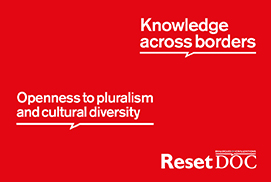5 February 2015
Tunisian journalists benefited hugely from the political openness which followed the stepping down of former president Zine El-Abidine Ben Ali, securing unprecedented rights that empowered them to question the political sphere. After having been hostages of the most repressive media system for decades, Tunisian journalists gained essential rights as a result of a largely successful media reform that liberated them from the government dictate. However, the empowerment of the media community did not automatically lead to a new newsroom culture based on professional media practices. The complex and crucial issues at stake in the political transition and the tough political polarization left the media community in limbo. The media polarization is a result of the political divide but it is also in turn fuelling it. In this heightened environment, facts are blurred with rumour. The manipulation of news by journalists for the sake of their ideological agendas and allies friends is leading to confusion and the return of the old style media propaganda. If regulatory change is a difficult process, journalists’ identity change remains the thorniest challenge.[1]


